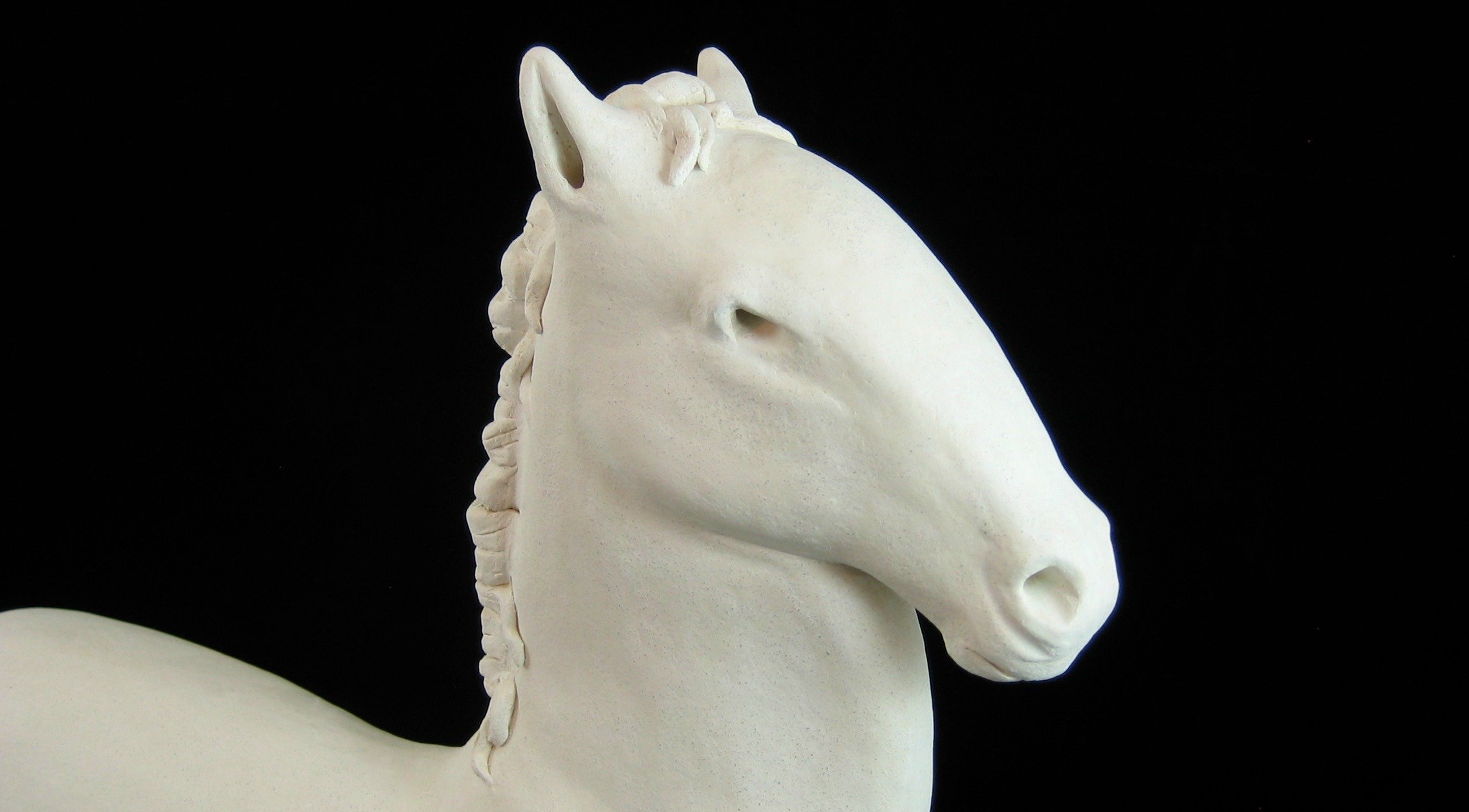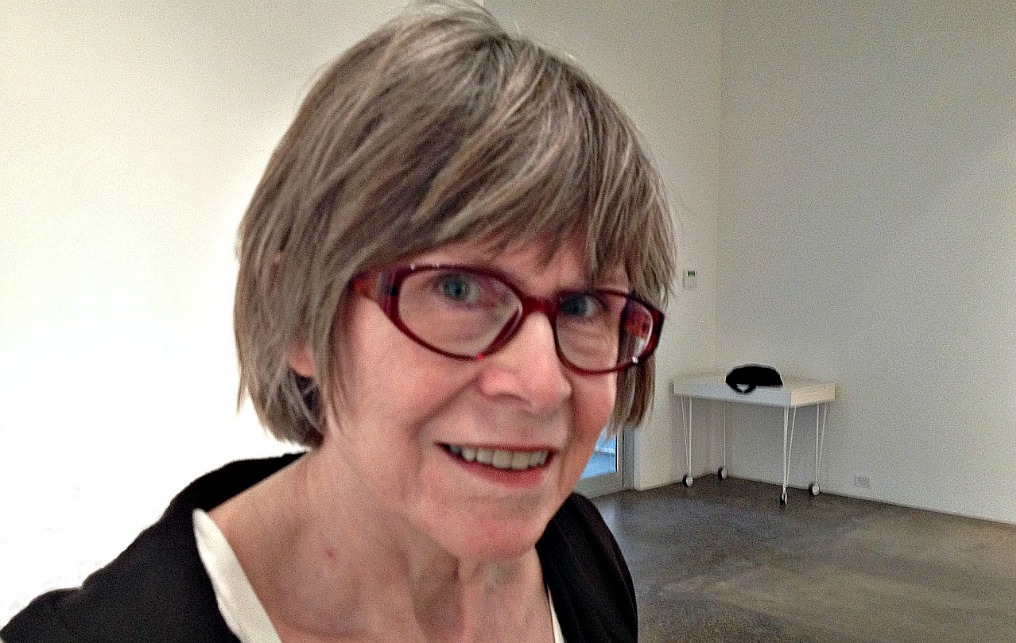Sculptor Celia Eberle: Materials, Mythology And The Dallas Art Scene
ArtandSeek.net January 7, 2016 25
He’s the one who plays ‘Are You Lonesome Tonight?’ Celia Eberle, ‘Hero,’ ceramic, wood, music box. Detail.
Longtime Dallas artist Celia Eberle opens her newest show this weekend called ‘The Mythology of Love.’ Eberle is known for her inventive use of different materials, different approaches to sculpture. Art & Seek’s Jerome Weeks sat down with Eberle in the studio to ask, What’s love got to do with it?
The other day, I went to the Cris Worley Gallery, to see your new show, ‘The Mythology of Love.’ And I had an odd encounter with one of your sculptures. It played Elvis Presley’s ‘Are You Lonesome Tonight.’ You put music boxes in two of your sculptures. Why?
But I mean you could have used chocolates. Why music boxes in particular?

Celia Eberle at Cris Worley Fine Arts. Photo: Jerome Weeks
Oh, this was a rare time when I could actually play a sculpture. You also created giant perfume bottles and then four perfumes — which you labeled individually, L – O – V – E.
What distinguishes the four? What does love smell like?
Now, it may seem unusual to include music boxes and perfumes in sculpture, but looking at your works, one is struck by the incredible range of materials. These include alabaster, wood, bone, copper, lapus lazuli, turtle shell, diamonds, newsprint, coral, brass – I can go on for quite some time. What leads you to all these different materials?

This one plays Beethoven’s ‘Moonlight Sonata.’ Celie Eberle, ‘Secret Ceremony,’ wood, glass, snowflake obsidian, found object, music box. Photo: Jerome Weeks
As a working artist who’s been in the North Texas scene since the ’80s, back with 500X Gallery — when you look back and you realize ten years ago, the Arts District wasn’t complete, the Design District didn’t exist the way it does, the Bishop Arts District, and so we often hear of this new energy, new activity, I was wondering what difference has all this made to you?
But do you see better sales for yourself? More attention for your work?
So the effect on you as a working artist is more about the feeling of connection?
Well, Celia, thank you very much.










